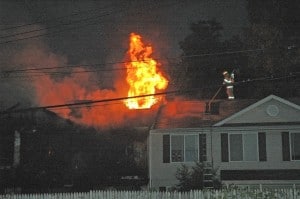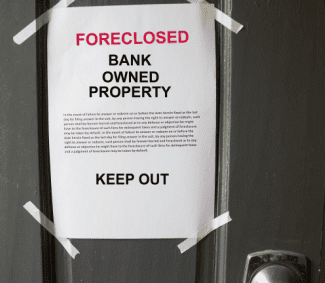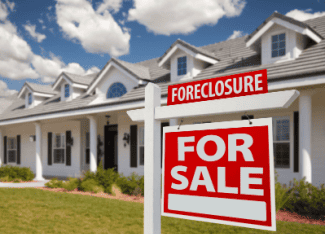As California burns, here’s what you need to know about fire insurance

If you live in a high-risk area, such as near a canyon, you may need to pay more for additional coverage.
And if, God forbid, a fire has devastated whole communities, such as what we’re seeing now in Northern California, your home-replacement dollars could be stretched thin as costs soar for everything from materials to labor.
“All those commercials about insurance companies offering peace of mind when things like this happen — those are just ads,” said Amy Bach, executive director of United Policyholders, a San Francisco-based advocacy group.
“In reality, insurance policies are written by teams of lawyers, and it can be rough for homeowners,” she said.
Most homeowners insurance covers both your home and all property within. More than 90% of homeowners buy coverage, according to recent estimates, and as many as 40% of renters purchase insurance for their belongings.
After the recent drought turned California into a huge pile of kindling, insurers racked up billions of dollars in fire-related claims. Some, such as Allstate, stopped writing new policies. Others, such as Farmers and State Farm, became choosier about homes they’d cover.
The insurance industry says it’s ready to handle claims from the fires now raging statewide.
“Insurers will 100% be there for homeowners,” said Nicole Ganley, a spokeswoman for the western region of the Property Casualty Insurers Assn. of America, a trade group. “Insurers are moving very quickly to help policyholders.”
Be that as it may, coverage may not always be easy to obtain.
Homeowners in high-risk areas who can’t find coverage in the open market may have to turn to a state-sponsored program called the California FAIR plan. FAIR covers up to $1.5 million for a structure and its contents, which in some cases won’t be enough for full replacement of a lost home and property.
If there’s one takeaway from the blazes now causing widespread damage in the Golden State, it’s for homeowners and renters to make sure their coverage is up to date — and that nothing sneaky has made its way into your policy.
Narbeh Shirvanian, a Glendale lawyer who handles fire-related claims, said it’s not unheard of for an insurer to change the terms of a policy during the renewal process.
“It might be disclosed,” he said. “But let’s be honest, nobody really reads all this stuff.”
As a result, you may find that you’re shouldering more of the risk than you originally thought.
Shirvanian also warned of seemingly arbitrary responses to fire claims. If a structure burns down, then all legitimate insurance claims will be honored.
But what if there’s a wildfire nearby and your home is impacted by smoke and ash? Will your homeowners coverage pay for the cleanup?
“We’re seeing issues with smoke and ash damaging homes and insurance companies playing games,” Shirvanian said. “One year they do one thing, one year they do something else.”
It’s very important as the economy recovers from the Great Recession to be mindful of rising property values. Yes, that’s great from a maybe-I’ll-sell perspective. From a fire perspective, it can be a whole other thing.
Replacement costs you locked in for your insurance policy may no longer reflect current conditions, meaning you may have to reach into your own pocket to make yourself whole.
Also, widespread fire damage will be felt in the market in the form of rising costs for materials such as wood and concrete, and almost certainly higher labor costs as contractors take advantage of supply-and-demand situations.
A smart idea is to pay a little extra for what’s known as an extended replacement cost endorsement. This is basically additional coverage intended to accommodate at least a portion of any unexpected cost increases.
You can also purchase additional coverage for code upgrades. For example, the rules might have changed for electrical systems or insulation since your house was built. Code-upgrade insurance will protect you from so-called betterments that your basic policy might not address.
“Insurance companies have had enough experience with fires in California to do a good job of resolving claims,” said Bach at United Policyholders. “But that’s still not always the case.”
I strongly advise homeowners and renters to take their smartphones and walk around their homes shooting a video of their belongings. This can provide helpful evidence if an insurer disputes, say, that you owned a state-of-the-art home-theater setup.
If you have to evacuate, save all receipts. Many homeowners policies include so-called ALE coverage, as in “additional living expenses,” which will include costs such as hotel rooms, food and rentals.
For more info, you can reach out to the state Department of Insurance via their consumer hotline: (800) 927-4357.
Source: latimes.com















 Accessibility
Accessibility